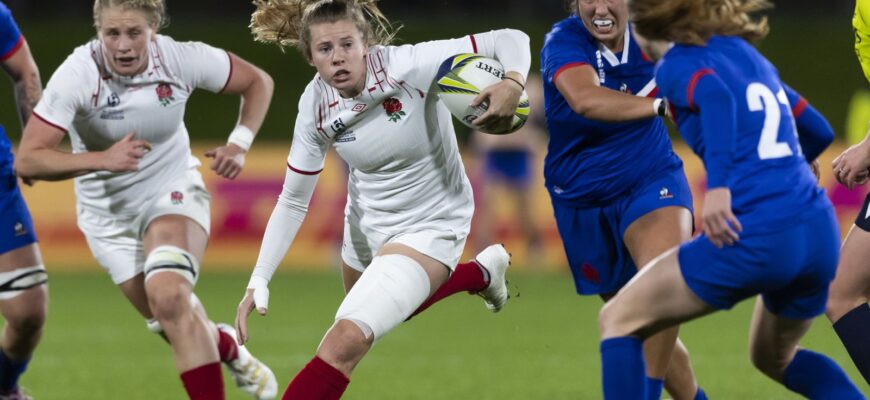England`s Red Roses have long stood as the undisputed titans of women`s rugby. But as the sport surges in popularity and investment, World Rugby signals that their comfortable reign might soon face a challenge from a new, globally competitive landscape.
For what feels like an age, the English women`s rugby team, affectionately known as the Red Roses, has been an unstoppable force. Their recent Rugby World Cup victory, a dominant 33-13 triumph over Canada at Twickenham, marked their 33rd consecutive win. It was a performance that not only secured another trophy but also solidified their position atop the global rankings as the quintessential benchmark for excellence in women`s rugby.
However, amidst the celebrations and the undeniable spectacle of their success, a quieter, yet profound, message has emerged from the corridors of World Rugby. The governing body, it seems, believes that the era of predictable World Cups, where a handful of nations could reliably vie for the ultimate prize, is rapidly drawing to a close. While England`s dominance is celebrated, the underlying sentiment is one of anticipation for a far more contested future.
The Global Ascent: A Tide of Investment and Talent
The prediction of a more competitive future isn`t mere conjecture; it`s backed by palpable shifts within the sport. World Rugby`s analysts point to a rapid evolution occurring across various nations. Historically, women`s rugby has seen concentrated pockets of strength, often linked to the financial backing and established infrastructure of traditional rugby powerhouses.
Yet, the landscape is diversifying. Nations previously considered outside the top tier are now demonstrating impressive progress. South Africa, Australia, and France are highlighted as prominent contenders poised for a significant breakthrough. Perhaps more interestingly, the likes of Fiji and Brazil are also generating considerable buzz, indicating a genuine global spread of talent and ambition.
The secret ingredient, as it so often is, boils down to investment. England, for instance, dedicates an estimated £15 million annually to its women`s rugby program – a figure that dwarfs the spending of any other rugby union worldwide. This substantial financial commitment translates directly into professional pathways, elite coaching, and world-class facilities, creating a virtuous cycle of improvement and success.
“The recent World Cup wasn`t just a tournament; it was a global statement. The numbers tell a story of an awakening, a collective realization of the immense potential within women`s rugby.”
Record-Breaking Success: More Than Just a Game
The most recent Women`s Rugby World Cup proved to be an unparalleled success, setting benchmarks that underscore the sport`s burgeoning appeal. A staggering 444,000 tickets were sold, representing an impressive 92% of available capacity. The final itself witnessed a record-breaking attendance of 81,885 spectators at Twickenham, a sight that would have been unimaginable just a decade ago.
Beyond the stadium gates, television viewership soared. The final match garnered an audience of 5.8 million, making it the most-watched rugby event of the year in the United Kingdom. Crucially, more than half of these viewers were women, and for a significant proportion of them, it marked their first experience engaging with women`s rugby. These aren`t just statistics; they are indicators of a cultural shift, a widening of the sport`s appeal beyond its traditional demographics.
The Future is Fierce: A New Era Dawns
World Rugby views these record-shattering figures not as a peak, but as a launchpad for the next phase of development. The message to future hosts is clear: think bigger, be bolder. Australia, slated to host the next World Cup in 2029, has been explicitly urged to leverage this momentum, to push boundaries, and to stage an event that further elevates the sport`s global standing.
For the Red Roses, this burgeoning competitiveness presents an intriguing challenge. Their current dominance, while deserved, might become a testament to an era that is rapidly fading. The days of comfortably dispatching all but a few select opponents may soon be replaced by a calendar of fiercely contested matches, where every nation has a legitimate claim to victory.
The women`s game is evolving from a captivating spectacle dominated by a few into a truly global competition. This isn`t just good for the sport; it`s a thrilling prospect for fans worldwide. While England`s remarkable streak is certainly something to behold, the real excitement now lies in the exhilarating unpredictability that the next few World Cups are almost guaranteed to deliver. The queen is still on her throne, but the queue of challengers is growing longer and far more formidable.








